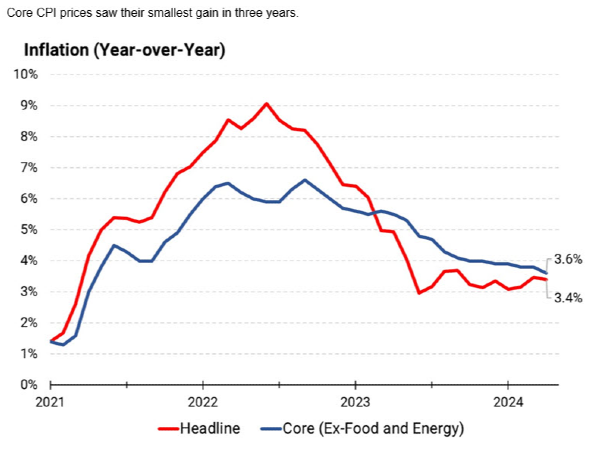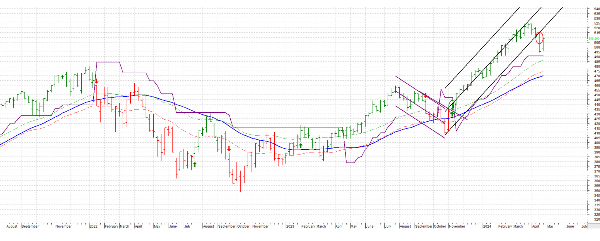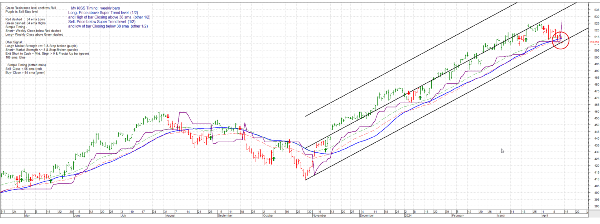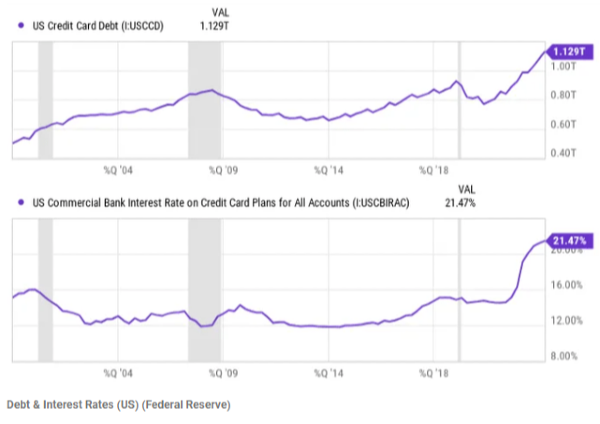Expertise provided by Darius Smith
Reviewed by Chaster Johnson
Getting into investing may feel overwhelming for beginners, in the finance realm. Nonetheless armed with the know-how and tactics it transforms into a fulfilling pursuit. This manual delves into principles tailored for novices ranging from grasping the importance of investing to pinpointing strategies and initial investment choices.
Why Should You Start Investing?
Investing serves as an asset, in growing wealth. Reaching financial milestones. Below are some factors to ponder when contemplating the initiation of investment:
Wealth Accumulation: When you invest your money it has the potential to increase over time. Thanks, to interest even modest investments can see growth when given the chance to accumulate over the years.
Inflation Hedge: Over time inflation reduces the value of money. One way to counteract this is, by investing in assets that increase in value.
Financial Independence: By constructing an investment portfolio you can attain freedom enabling you to pursue your aspirations without depending solely on income, from work.
Retirement Planning: Saving for retirement is important, as relying on Social Security might not cover all your expenses. That's why it's necessary to make personal investments to secure your lifestyle.
Achieving Financial Goals: Investing allows you to gather the funds needed for life events such, as purchasing a home financing education or launching a business.
How Much Money is Needed to Start Investing?
The initial investment required can differ. The positive aspect is that you don't have to possess a sum of money to get started. Here are some considerations:
Low Minimum Investments: You can open brokerage accounts with $100 in some cases. Moreover, certain platforms let you buy shares allowing you to invest in priced stocks with a small sum of money.
Consistent Contributions: Consistently investing, with amounts can lead to substantial wealth in the long run, sometimes more crucial, than starting with a large sum all at once.
Emergency Fund: Make sure you have some savings set aside before you start investing. This savings should be enough to cover your living expenses, for 3 6 months and offer some security.
Debt Consideration: If you're dealing with debt like credit card debt, with interest rates it might be a good idea to prioritize paying that off before considering investments. The benefits of eliminating high-interest debt can often outweigh the returns from investing.
Best Investments to Get Started With
Starting out it's important for newcomers to select investments that match their objectives, comfort level, with risk and investment timeline. Here are a few top choices:
1. Value Investing
Investing in value stocks means buying shares that seem to be priced lower, than their worth, in the market. This approach involves keeping these stocks for a minimum of two years which can reduce the taxes you pay when you decide to sell them.
- Long-Term Focus: Engaging in value investing involves holding onto your investments for a period enabling you to capitalize on the company’s progress and reliability.
- Tax Efficiency: Investments held for, over a year meet the criteria for reduced tax rates, on long-term capital gains.
2. Exchange-Traded Funds (ETFs)
For newcomers ETFs are a favored option because they offer diversification and cost effectiveness.
- Diversification: Exchange-traded funds (ETFs) allocate funds to a collection of assets diversifying risk among securities.
- Low Fees: Exchange-traded funds typically come with expense ratios when compared to funds.
- Liquidity: ETFs offer the convenience of being able to trade at any point during the day allowing for flexibility, in investment decisions.
3. Index Funds
Index funds are investment funds, either mutual funds or ETFs that aim to mirror the performance of a market index like the S&P 500.
- Market Exposure: Investment funds that track indexes provide access, to a range of the market.
- Low Costs: Index Funds usually come with management fees.
- Simplicity: Index funds are an option, for those, to invest as they require minimal effort and oversight.
4. Individual Stocks
For people who are interested, in researching and keeping an eye on their investments investing in stocks can lead to satisfying outcomes.
- Ownership: When you invest in stocks you essentially become a shareholder, in the company.
- Potential Returns: Investing in stocks has the potential to yield profits when contrasted with investing in diversified funds.
- Value Stocks: Look for stocks that are considered to be underpriced according to indicators.
5. Real Estate Investment Trusts (REITs)
Real estate investment trusts (REITs) are businesses that own, manage or provide backing, for real estate properties that generate income.
- Real Estate Exposure: Investing in Real Estate Investment Trusts (REITs) allows individuals to participate in the real estate market without having to purchase property.
- Dividends: Real estate investment trusts frequently offer dividends ensuring a source of income.
- Diversification: Adding real estate investment trusts (REITs) to your investment portfolio can help enhance its diversification.
Best Investment Strategies for Beginners

Selecting the optimal investment approach is vital, for achieving success. Below are a top notch strategies tailored for those just starting out in the investment world.
1. Value Investing
Investors who follow value investing seek out stocks that they believe are not accurately priced by the market. This method involves delving into the company's fundamentals and evaluating its potential, for growth.
- Research: Analyze financial statements, earnings reports, and market trends.
- Long-Term Perspective: Hold investments for an extended period to realize their full potential.
- Patience: Value investing requires patience and discipline.
2. Dollar-Cost Averaging
Investing through dollar cost averaging means putting an amount of money into investments, on a schedule without being influenced by the state of the market.
- Consistency: This strategy ensures regular investment contributions.
- Reduced Risk: Spreads the purchase price over time, reducing the impact of market volatility.
- Simplicity: Easy to implement and maintain.
3. Diversification
Investing diversely means putting your money into types of assets to lower the chances of risk.
- Balanced Portfolio: Combine stocks, bonds, real estate, and other assets.
- Risk Management: Diversification helps protect against market downturns.
- Stable Returns: A diversified portfolio can provide more stable returns over time.
4. Buy and Hold
Investors often adopt the buy and hold approach by buying assets and keeping them for a time irrespective of how the market moves.
- Long-Term Growth: Capitalizes on the long-term growth of investments.
- Lower Costs: Reduces transaction costs and taxes.
- Less Stress: Avoids the need for frequent trading decisions.
5. Using Better Investing’s Stock Selection Guide (SSG)
Better Investing offers the Stock Selection Guide (SSG) as a tool to assist investors in evaluating and choosing stocks.
- Detailed Analysis: The SSG provides a comprehensive analysis of a company's financial health and growth prospects.
- Educational Resource: Ideal for beginners looking to learn more about stock analysis.
- Community Support: Access to a community of investors for advice and support.
Conclusion
Starting to invest when you're new, to the game might feel daunting. With the approach and knowledge, it can turn out to be quite fulfilling. Begin by grasping the reasons behind investing and determining your starting capital. Look into investment avenues like value investing, ETFs, index funds, individual stocks, and REITs. Apply techniques such as value investing, dollar cost averaging, diversification, long-term holding, and utilizing the Stock Selection Guide.
Just keep in mind that successful investing requires patience, self-control, and a commitment to learning. Embark on your investment journey today. Move closer, to reaching your objectives.
For more information watch this video:
https://youtu.be/hw2NTEgj4Zk






















Expertise provided by Darius Smith
Reviewed by Chaster Johnson
Getting into investing may feel overwhelming for beginners, in the finance realm. Nonetheless armed with the know-how and tactics it transforms into a fulfilling pursuit. This manual delves into principles tailored for novices ranging from grasping the importance of investing to pinpointing strategies and initial investment choices.
Why Should You Start Investing?
Investing serves as an asset, in growing wealth. Reaching financial milestones. Below are some factors to ponder when contemplating the initiation of investment:
Wealth Accumulation: When you invest your money it has the potential to increase over time. Thanks, to interest even modest investments can see growth when given the chance to accumulate over the years.
Inflation Hedge: Over time inflation reduces the value of money. One way to counteract this is, by investing in assets that increase in value.
Financial Independence: By constructing an investment portfolio you can attain freedom enabling you to pursue your aspirations without depending solely on income, from work.
Retirement Planning: Saving for retirement is important, as relying on Social Security might not cover all your expenses. That's why it's necessary to make personal investments to secure your lifestyle.
Achieving Financial Goals: Investing allows you to gather the funds needed for life events such, as purchasing a home financing education or launching a business.
How Much Money is Needed to Start Investing?
The initial investment required can differ. The positive aspect is that you don't have to possess a sum of money to get started. Here are some considerations:
Low Minimum Investments: You can open brokerage accounts with $100 in some cases. Moreover, certain platforms let you buy shares allowing you to invest in priced stocks with a small sum of money.
Consistent Contributions: Consistently investing, with amounts can lead to substantial wealth in the long run, sometimes more crucial, than starting with a large sum all at once.
Emergency Fund: Make sure you have some savings set aside before you start investing. This savings should be enough to cover your living expenses, for 3 6 months and offer some security.
Debt Consideration: If you're dealing with debt like credit card debt, with interest rates it might be a good idea to prioritize paying that off before considering investments. The benefits of eliminating high-interest debt can often outweigh the returns from investing.
Best Investments to Get Started With
Starting out it's important for newcomers to select investments that match their objectives, comfort level, with risk and investment timeline. Here are a few top choices:
1. Value Investing
Investing in value stocks means buying shares that seem to be priced lower, than their worth, in the market. This approach involves keeping these stocks for a minimum of two years which can reduce the taxes you pay when you decide to sell them.
2. Exchange-Traded Funds (ETFs)
For newcomers ETFs are a favored option because they offer diversification and cost effectiveness.
3. Index Funds
Index funds are investment funds, either mutual funds or ETFs that aim to mirror the performance of a market index like the S&P 500.
4. Individual Stocks
For people who are interested, in researching and keeping an eye on their investments investing in stocks can lead to satisfying outcomes.
5. Real Estate Investment Trusts (REITs)
Real estate investment trusts (REITs) are businesses that own, manage or provide backing, for real estate properties that generate income.
Best Investment Strategies for Beginners
Selecting the optimal investment approach is vital, for achieving success. Below are a top notch strategies tailored for those just starting out in the investment world.
1. Value Investing
Investors who follow value investing seek out stocks that they believe are not accurately priced by the market. This method involves delving into the company's fundamentals and evaluating its potential, for growth.
2. Dollar-Cost Averaging
Investing through dollar cost averaging means putting an amount of money into investments, on a schedule without being influenced by the state of the market.
3. Diversification
Investing diversely means putting your money into types of assets to lower the chances of risk.
4. Buy and Hold
Investors often adopt the buy and hold approach by buying assets and keeping them for a time irrespective of how the market moves.
5. Using Better Investing’s Stock Selection Guide (SSG)
Better Investing offers the Stock Selection Guide (SSG) as a tool to assist investors in evaluating and choosing stocks.
Conclusion
Starting to invest when you're new, to the game might feel daunting. With the approach and knowledge, it can turn out to be quite fulfilling. Begin by grasping the reasons behind investing and determining your starting capital. Look into investment avenues like value investing, ETFs, index funds, individual stocks, and REITs. Apply techniques such as value investing, dollar cost averaging, diversification, long-term holding, and utilizing the Stock Selection Guide.
Just keep in mind that successful investing requires patience, self-control, and a commitment to learning. Embark on your investment journey today. Move closer, to reaching your objectives.
For more information watch this video:
https://youtu.be/hw2NTEgj4Zk